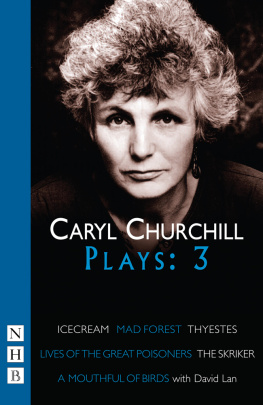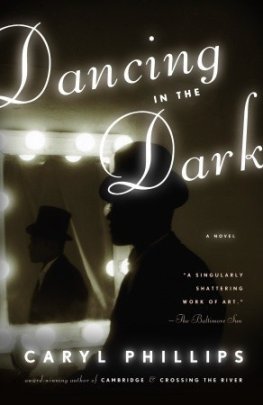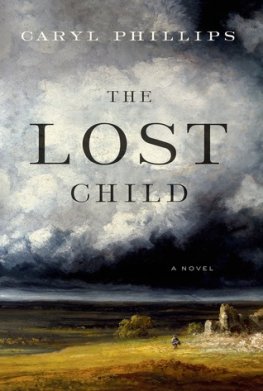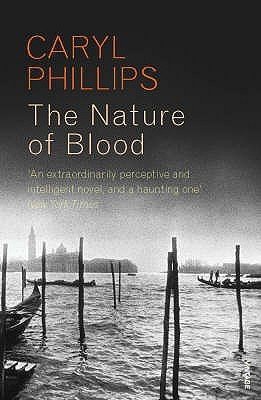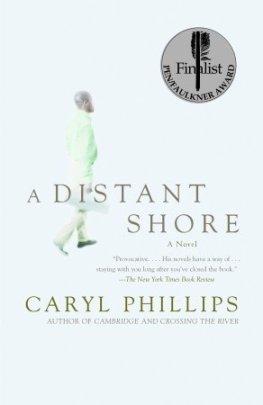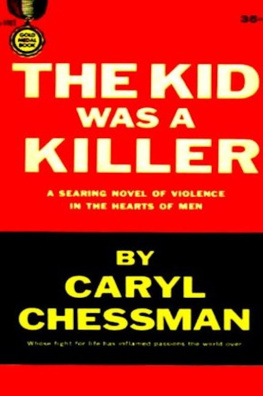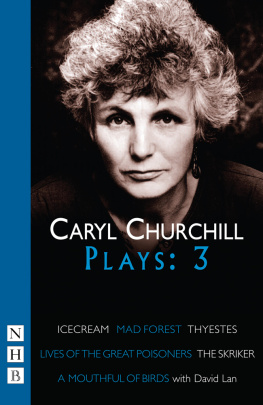Caryl Churchill - Caryl Churchill Plays: Four
Here you can read online Caryl Churchill - Caryl Churchill Plays: Four full text of the book (entire story) in english for free. Download pdf and epub, get meaning, cover and reviews about this ebook. publisher: Nick Hern Books, genre: Detective and thriller. Description of the work, (preface) as well as reviews are available. Best literature library LitArk.com created for fans of good reading and offers a wide selection of genres:
Romance novel
Science fiction
Adventure
Detective
Science
History
Home and family
Prose
Art
Politics
Computer
Non-fiction
Religion
Business
Children
Humor
Choose a favorite category and find really read worthwhile books. Enjoy immersion in the world of imagination, feel the emotions of the characters or learn something new for yourself, make an fascinating discovery.

- Book:Caryl Churchill Plays: Four
- Author:
- Publisher:Nick Hern Books
- Genre:
- Rating:3 / 5
- Favourites:Add to favourites
- Your mark:
- 60
- 1
- 2
- 3
- 4
- 5
Caryl Churchill Plays: Four: summary, description and annotation
We offer to read an annotation, description, summary or preface (depends on what the author of the book "Caryl Churchill Plays: Four" wrote himself). If you haven't found the necessary information about the book — write in the comments, we will try to find it.
Caryl Churchill Plays: Four — read online for free the complete book (whole text) full work
Below is the text of the book, divided by pages. System saving the place of the last page read, allows you to conveniently read the book "Caryl Churchill Plays: Four" online for free, without having to search again every time where you left off. Put a bookmark, and you can go to the page where you finished reading at any time.
Font size:
Interval:
Bookmark:
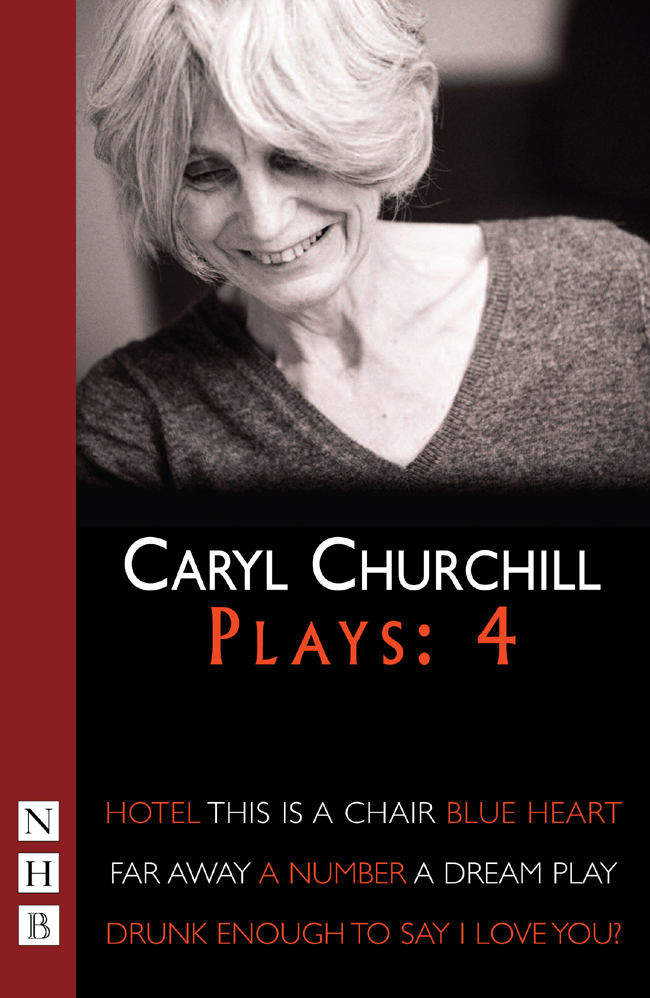
Caryl Churchill
PLAYS: FOUR
introduced by the author
Hotel
This is a Chair
Blue Heart
Far Away
A Number
A Dream Play
(translated from Strindberg)
Drunk Enough to Say I Love You?

NICK HERN BOOKS
London
www.nickhernbooks.co.uk
Contents
Introduction
Hotel , This is a Chair and the two plays in Blue Heart all come from around the same time, 19945, and from a similar mindset. Hotel isnt a play but an opera libretto. This is a Chair is a series of impressive subjects that a play might address and the scenes dont address them. Hearts Desire is a play that cant happen, obsessively resetting itself back to the beginning every time it veers off-course. Blue Kettle is a play infected with a virus.
Hotel was written for Orlando Gough, and Ian Spink directed it for Second Stride with reckless generosity despite the large cast. I fear the large company and few performances may have been one of the reasons the Arts Council cut the grant of this great, innovative company.
The first piece, itself originally called Hotel , was written first. Ive never liked too many words in an opera and dont want to be reading while I listen or straining to extricate sentences from the music. So I went for few words and no sentences, just scraps of what the characters are thinking or saying, which can easily be picked up and can also just be heard as sound when they are repeated or combined. Occasionally people ask if it can be performed as a play, without music, but that seems to miss the point. The characters can sing together from their separate rooms as they sit together on the same bed watching the same TV.
We then decided to make a second piece, so we renamed Hotel as Eight Rooms and the new piece Two Nights . Here the dancers who played the silent couple in Eight Rooms played the central characters, and Ian choreographed their hotel-room stories, while the singers were more of a chorus. Their text is supposed to be fragments of a diary found in the hotel room of someone who has disappeared. I think its all right to perform either of the pieces separately.
Around this time I wrote a short scene of a quarrel, using just scraps of what is said and racing through a whole evening in five minutes. I cant remember if this was before or after I wrote Hotel . I was looking at the same question how little do we need to hear to understand whats going on? but from a different motive, not music but impatience. Soon after that I wrote This is a Chair , and later director Stephen Daldry and I decided to include the scene (as Hong Kong), partly to make the play a bit longer, I think, and partly because it looked as if it would be fun to work on. It was, though it took a disproportionate amount of rehearsal: if time passes between every line, should the gestures and position of the actors change? And the scene has to go fast, of course, with no gaps for the missing time. The scene sits a little oddly in This is a Chair because its written differently from the others but also I like it there, so it can be left in or out in performance. The titles should probably be updated for new productions, and Im happy to have suggestions run by me. Nowadays The War in Afghanistan would probably be a title, and Climate Change would be there. Though not, of course, written about.
The Blue Heart plays, I realised afterwards, can be roughly linked in subject matter by being described as a family waiting for their daughter and a son looking for his mother. But the plays are McGuffins my main intention was their destruction.
Some time after all this, 1999, I wrote Far Away , which feels to me quite different as the play isnt being undermined. The three parts can seem disconnected, linked only by the girl who goes through them and widening hostilities, but I think they are also linked by the characters desire to be on the side of whats right.
A Number has cloning at the centre of its story but I never quite feel its a play about cloning. The clonings not quite a McGuffin but it does let me look at a lot of things that interest me. I realised after Id written it that Id thought about some of the same things in Identical Twins more than twenty-five years earlier. Im reluctant to give advice rather than let the play stand on its own feet now, but I will point out that Michael isnt a fool. Its easy to make him a laughing stock to the audience, because he fails to come up with something that satisfies Salter, but his answers seem to me good ones and a serious answer to Salters search for some essence of a person. That doesnt mean there arent laughs in the scene.
I came up with a text of Strindbergs Dream Play for Katie Mitchell, who was planning to direct it at the National Theatre in London. I didnt go to the Swedish which I dont know, but looking at it would have told me something but worked from a translation by Charlotte Barslund, given to me by the National. Katie had some cuts in mind and I made a few as well. I slightly regret losing the first scene where the daughter comes down to earth, which balances her departure at the end, but apparently that was an afterthought of Strindbergs in any case, and the focus of the production was not the daughters story but a dreamers. There were more cuts in rehearsal, and dance and more dreams, so this text isnt an account of the production, but what I gave Katie as a starting point. I feel wary of cuts and versions, as opposed to complete and skilful translations by someone who knows both languages but perhaps theres a place for both, for writers lucky enough to still be performed when theyre dead.
Drunk Enough to Say I Love You? was originally called in my head The Man Who Fell in Love with America. But that seemed to tell too much. A lot of people all over the world have a kind of romance with America or its culture or the idea of it, even if they also increasingly and simultaneously dislike it. Sam was always Sam, as in Uncle, as in political cartoons where he stands for America. The other character didnt have a name while I was writing the play, and when I had to come up with one I thought of Jack as an everyday name Jack of all trades, Jack the lad. What I didnt think, stupidly, was Union Jack, which was the quite sensible conclusion some people jumped to. That made the man in love with America be seen as Britain, as Sam was America. It was hard enough anyway to understand that Sam was a country while the person in love with him was just a man, like someone in the audience, and now Id shot myself in the foot. I tried to get the play away from the misconceptions for the New York production by changing the mans name to Guy (a guy, ha ha, far too obvious but I was past caring) and in Germany he was German. Id always imagined he would just be someone from whatever country the play was done in. He could even be an American citizen in an American production, patriotically in love with his country and increasingly disillusioned. Another misconception was that the characters stood for Bush and Blair, specially as they began to be portrayed in cartoons as lovers. But the play looks at Americas foreign policy from far further back, any time since the Second World War. Some people seemed surprised by the Iraq War as if it was an aberration caused by Bush and the neocons, but though its an extreme example its not so different from the general thrust of American policy for most of its history, and part of my point in writing the play was precisely that this was not just something that had come with Bush and would go away after him. I read a number of books to learn more details and found William Blums Rogue State and Killing Hope particularly useful.
Font size:
Interval:
Bookmark:
Similar books «Caryl Churchill Plays: Four»
Look at similar books to Caryl Churchill Plays: Four. We have selected literature similar in name and meaning in the hope of providing readers with more options to find new, interesting, not yet read works.
Discussion, reviews of the book Caryl Churchill Plays: Four and just readers' own opinions. Leave your comments, write what you think about the work, its meaning or the main characters. Specify what exactly you liked and what you didn't like, and why you think so.

